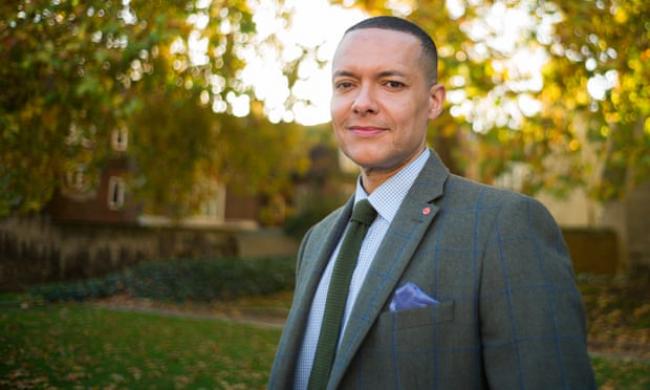Articles Menu

From cutting back on red meat to taking fewer flights, the Norwich South MP said the public must face up to “real, stark choices” in the years ahead.
“If you want your children and grandchildren to avoid food shortages, to avoid power shortages, to avoid biological degradation, biodiversity loss – if you actually want a planet that’s inhabitable – then we need to make some choices together, now, and some of them are about quite dramatic changes to how we live,” Lewis said in an interview with the Guardian.
Having returned to Labour’s frontbench a year ago, after resigning in protest when Jeremy Corbyn whipped MPs to support the triggering of article 50, Lewis was given the job of examining how a Labour government could champion sustainable economics. He has repeatedly made it clear he regards the issue as a test of political leadership.
“I think there’s a crunch point now coming for politics. You often hear there’s no leadership in politics – and this isn’t a leadership pitch, I promise you – but when you talk about leadership, there’s leadership in different forms,” he said.
On red meat, for example, Lewis said: “I’m not going to sit here and say, yeah, let’s ban red meat … but you can show leadership by asking, well actually, is it right that we publicly subsidise an industry that is contributing so much to greenhouse gas emissions, and often is a very unsustainable practice?”
He said the government’s role should be to “encourage people and show leadership as to how we’re going to shift people’s eating habits on to a more sustainable footing”.
On air travel, he said Labour was starting to come up with options, including a tax “escalator”, which would have the biggest impact on frequent fliers, who tend to be the wealthiest.
In a wide-ranging interview, Lewis also mused about everything from the four-day week to universal basic income, and how to ensure the rapid technological innovation of the “fourth industrial revolution” benefits the wider public.
While many such policies are at an early stage of development, Lewis said the next Labour manifesto should be significantly different to the previous one.
“The 2017 manifesto gave a lot of people a kind of warm, cuddly glow, and it was a great reset of our values and where we are, but it was a base on which to build,” he said. “The next manifesto needs to be a radical manifesto, which builds on the reset, and is 21st-century socialism in action. There’s a hunger for that.”
McDonnell has asked the former head of the civil service Bob Kerslake to examine how to rework the Treasury green book – the manual for government spending decisions.
Lewis said he hoped environmental sustainability could be incorporated into Whitehall thinking as part of that review.
“The Treasury has been the instigator of selling off the green investment bank, of scuppering [the] Swansea tidal [lagoon power plant], of undermining the plastic tax and electric vehicles – because it simply sees things in a very short-term, revenue-generating manner,” he said.
“What we want to do is open out how the Treasury looks at spending and revenue, and looks in a longer term, more holistic and sustainable way – and that is radical.”
Lewis recently secured £17,500 from individual donors to fund his work on sustainable economics, giving him a measure of independence from the party machine.
He argued that developing a more sustainable economic model could allow Britain to take a leadership role in the world after Brexit.
“Leadership and punching above your weight doesn’t necessarily always have to mean gunboat diplomacy and bombing other countries into the stone age. It can actually mean leading by example, and helping other countries,” he said.
Lewis was widely considered a rising star on the left of the party when he arrived in parliament in 2015, and was catapulted on to the frontbench by Corbyn, as many more experienced MPs refused to serve or were sent packing.
But the former army reservist and TV reporter does not fit the mould of a career politician and has repeatedly charged headlong into controversy. In 2016, as shadow defence secretary, he clashed with Corbyn’s close aide Seumas Milne over last-minute changes to a party conference speech.
In late 2017, he apologised after video footage emerged of him using the phrase “get on your knees, bitch” at a party conference fringe event, and was then suspended – and cleared – over accusations that he groped a party member.
Most recently, Lewis was criticised after miming putting a gun in his mouth during a debate in the House of Commons as a Conservative MP interrupted his frontbench colleague Anneliese Dodds.
Lewis, who postponed his wedding to defend a wafer-thin majority in the 2017 general election, and recently became a father for the first time, said he found the BBC documentary Blue Planet too unsettling to watch.
“I couldn’t watch BP for a long time, until I started doing this job, because I knew in my heart that Blue Planet, as beautiful as it was, at the end they would always have the human impact, and I struggled to watch it because I felt so powerless,” he said.
He said he believed countering the human threats to the environment would have to mean junking “the obsession with flat-screen TVs and consumption”.
“On their deathbed, do people think: ‘I wish I’d spent more time with my Ferrari’? Or do they say: ‘I wish I’d spent more time watching my kids grow up, I wish I’d spent more time country walking’?
“It’s about the things that matter in life, and how we have an economy that better reflects that,” he said.
On Brexit, meanwhile, Lewis stuck rigidly to the party line, dismissing questions about what Labour would put in its manifesto if there were to be a snap general election as “hypothetical”.